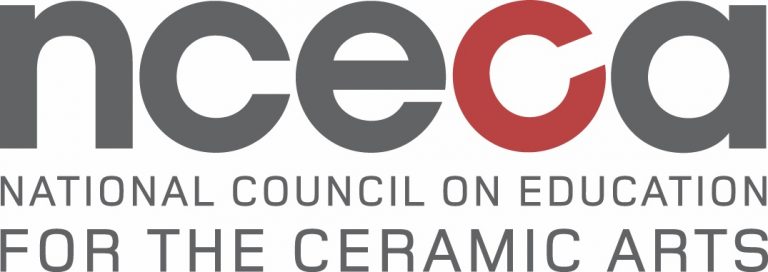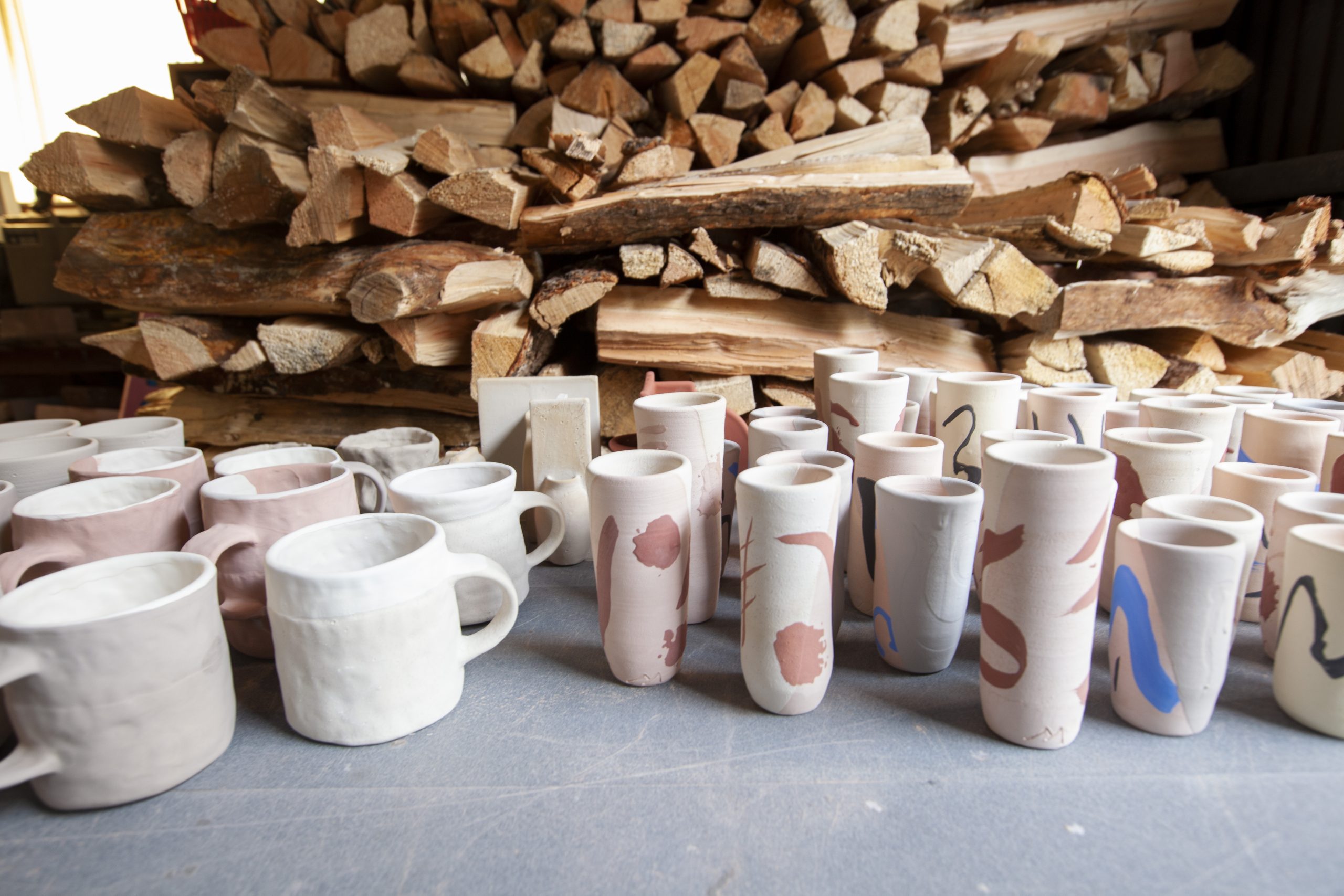Ceramics
Code: C0913-25
-
II
Level II
Students have a basic understanding of forming techniques, such as throwing and hand building. Students have taken one or two ceramics classes or workshops.
-
III
Level III
Students have significant experience with clay forming techniques, such as throwing, hand building and modeling. Students are comfortable with ceramics equipment, such as wheels, extruders and slab rollers. Students are self-starting with some formal training and have taken a minimum of three classes or workshops.
Clay as Canvas: Drawing and Decoration on 3D Forms
Jul 28 - Aug 8, 2025
9AM-5PM
Tuition: $1,910.00
Studio Fee: $210.00
Registration Fee: $45.00
NEW: Tuition includes the welcome dinner and daily lunch
Registration Information
Concept
This co-taught workshop explores surface decoration techniques on three-dimensional clay form. Jason Walker demonstrates crafting intricate animal figures and functional forms using hand-building and slip casting techniques, and brushwork drawing techniques on bone-dry clay with underglaze. Kyungmin Park guides the creation of human figurative sculptures decorated with a variety of vivid underglazes on bisque wares. Together, they offer diverse methods, from bold and colorful to subtle and refined, helping you discover new ways to enhance and elevate your clay sculptures.
Media & Techniques
Porcelaneous stoneware, porcelain, slip, underglaze, clay tools, hand-building, slip casting, sculpting, surface decoration, oxidation firing.

“At AMACO Brent we believe that creativity should be nurtured and accessible to everyone. That’s why we’re proud to donate materials to support the incredible workshops at Anderson Ranch Arts Center.
Anderson Ranch offers workshops for artists of all ages a chance to explore, experiment, and express themselves through hands-on learning with clay. We’re honored to help provide the tools that make those experiences possible—and excited to see what the participants create!
Here’s to workshops full of inspiration, imagination, and art.”
Faculty

Kyungmin Park
Kyungmin Park is a South Korean-born ceramic artist. Her work explores themes of introspection, diversity, societal expectations, and illuminating human connections across cultures and languages. She earned an MFA from the University of Georgia. She currently lives and works in Boston and is an associate professor at Endicott College in Beverly, MA. She has conducted over 40 workshops and lectures at various art institutions.

Jason Walker
Jason Walker lives in Utah, where he is an assistant professor of Ceramics at Southern Utah University. He earned his MFA from Penn State University and has shown extensively nationally and internationally. His work is included in museum collections including the Carnegie Museum, The Fine Art Museum of San Francisco: de Young, and The Renwick Gallery of the Smithsonian American Art Museum.

Kyungmin Park, Jan 06, 2006
Tuition: $1,910.00
Studio Fee: $210.00
Registration Fee: $45.00
NEW: Tuition includes the welcome dinner and daily lunch
Registration Information
Join Waitlist for Clay as Canvas: Drawing and Decoration on 3D Forms
Thank you for your interest in the waitlist. When space in a workshop or program becomes available, registration will open on the website. Everyone on the waitlist will be emailed to alert them of the opening. This ensures that everyone has an equal opportunity to register for the workshop or program.
Ceramics
In 1966, American ceramicist Paul Soldner selected the site for what is now Anderson Ranch Arts Center, forming the foundation for a thriving ceramics program. Then and now, Anderson Ranch is a place where students exchange ideas and examine ceramic art and pottery techniques. It has always been a place where seminal moments of growth happen in an artist’s creative and critical thinking. Here, both beginning and emerging artists gain strong fundamental support, while established artists achieve new perspectives and advance their techniques.
The Ranch Ceramics team provides support, feedback and technical problem-solving, giving each artist the freedom to experiment and grow. Our primary focus is on personal advancement through a process of creative discovery.
The Soldner Ceramics Center makes up more than 10,000 square feet in three buildings with 3 studio spaces and 1 kiln yard; Soldner Studio, Long Studio, Sorenson Studio and Lyeth/Lyon Kiln Building. Soldner and Long studios are used for wheel-throwing, hand-building, or general ceramics creativity. Sorenson studio is equipped with five PotterBot 3d clay printers. The Lyeth/Lyon kiln building is equipped with gas, electric, soda and wood kilns for both oxidation and reduction firing at all temperature ranges. The Ranch offers three wood kilns including a gas/wood hybrid kiln, three gas reduction kilns, one soda kiln and eleven high-temperature electric kilns.

Anderson Ranch is happy to extend a tuition discount* in summer one- or two-week adult ceramics workshops** for NCECA members at the student membership level or above. Please email reg@
Workshop Details
Workshop Supplies
For general information about studio access, shipping, and more, please visit our info page.
If you have any questions regarding your supplies for your workshop, please contact Joanne Seongweon Lee, [email protected].
Provided by Anderson Ranch
Equipment
- Containers
- Individual Tables
- Kilns
- Mixers
- Water Buckets
Supplies
- Plastic for Covering Works
- Shop Glazes
- The clay allowance is 125 pounds for this two-week workshop. Only the clays and glazes chosen for the workshop will be available for use, which are predetermined by the instructor. Please do not bring additional clay from your studio.
- Underglazes
- Wet/Dry Sandpaper 350 Grit
What you need to bring
Required Tools and Supplies
- Apron and/or Towel**
- Basic Pottery Tools**
- Detailed Paint Brushes (Size 0 and 1)**
- Favorite Pottery Tools From Your Home Studio
- Flat Watercolor Brushe (Size 1/4)**
- Liner Watercolor Brushes (Size 2-4)**
- Mudtool Red Rib Shape 0 and/or 1**
- Sketchbook/Notebook**
- Surform
- Variety of Brushes**
- Watercolor Painting Brushes Squirrel Round (Size 3 or 4)**
- X-acto Knife**
- V-361 Jet Black 2 oz
Optional Tools and Supplies
- Packing Materials**
- T-Shirt for Screen Printing**
- Underglazes. Anderson Ranch will provide a limited amount of underglazes. Students are welcome to bring their own.
* Available for purchase in the studio.
** Available to purchase at the Anderson Ranch ArtWorks Store for 10% off.
Learn more about shipping supplies and artwork to and from the Ranch in the Student Handbook.
Lodging & Meals
Housing is limited and includes shared and private lodging options. Reservations will be managed on a first-come, first-served basis. The earlier you reserve housing, the better your chance of receiving your preferred option. Please note: Workshop costs do not include accommodations.
NEW: Tuition includes a welcome dinner and lunches. In our effort to foster a stronger sense of community and accessibility at Anderson Ranch, we include the welcome dinner and all lunches as part of the tuition for summer workshop students. Our hope is that this adjustment will encourage all students to come together to share meals and engage in meaningful conversations. The Ranch Café Meal Plan, which is included with Room and Board fees, strives to provide healthy, creative meals that will nourish your artistic creativity. Learn more.
We have established a Business Safety Plan with added layers of precaution that prioritize the health and safety of our staff, students, faculty and guests while continuing to provide you with the Anderson Ranch experience that you know and enjoy.
Related Events

Scholarships, College Credit & Discounts
Making Art Accessible
Applications for scholarship support are encouraged. Specific scholarships are funded by Ranch supporters, either through endowed funds or special gifts.
Many colleges and universities offer college credit for workshops taken at Anderson Ranch. Discounts are available for students and teachers.
You Might Also Be Interested In

-
O
Open to All
Students of any skill and knowledge level.
Jun 2 - 6, 2025
9AM-5PM
Blue and White Tradition: Paint with the Conscious and Subconscious Mind
Sin-ying Ho
Tuition $1,390
Code C0102-25
Join us in the exploration of historic and contemporary techniques of blue and white porcelain painting. Originating in the Yuan Dynasty and flourishing in the Ming Dynasty, this artform continues to thrive in China. The workshop examines the influence of both the conscious and subconscious mind on design, blending Eastern and Western concepts. Ho teaches traditional Chinese blue and white painting techniques using cobalt underglaze, while Reed showcases contemporary methods including glaze and underglaze painting, 4D design, digital decal transfer, and innovative re-firing and reglazing techniques. This workshop is ideal for artists and enthusiasts seeking to deepen their porcelain painting skills.

-
II
Level II
Students have a basic knowledge of 3-D art making and sculpture concepts and are comfortable using a variety of hand and power tools. Students have taken one or two sculpture classes or workshops.
-
III
Level III
Students have experience with a variety of materials and fabrication techniques and know how to use hand and power tools competently and safely. Students are self-starting with some formal training in critical aspects of sculpture and have completed a portfolio of work. Students have taken a minimum of three classes or workshops.
-
IV
Level IV
Students have advanced skills and knowledge of sculpture. Students are highly motivated, have a minimum of five years experience in the field and have multiple portfolios of their artwork. Typical students are academics and professional artists.
Jun 2 - 13, 2025
9AM-5PM
Building With Clay and Steel
Trey Hill
Tuition $2,010
Code S0101-25
Investigate new materials and approaches to building sculpture in this two-week exploratory workshop. Students discover innovative ways to combine different materials, creating dynamic mixed-media sculptures. This workshop experiments with adding different materials to students’ work—such as clay, steel, and found objects—while considering how each adds formal information and intensified content. This rigorous studio environment gives access to a variety of new materials and fresh ways of approaching students’ studio practice. The workshop is open to students working in any media who are looking to try something different and add new skills to their toolbox.

-
III
Level III
Students have significant experience with clay forming techniques, such as throwing, hand building and modeling. Students are comfortable with ceramics equipment, such as wheels, extruders and slab rollers. Students are self-starting with some formal training and have taken a minimum of three classes or workshops.
-
IV
Level IV
Students have advanced skills and knowledge of the ceramics field. Students are highly motivated, have a minimum of five years experience in the field and have a portfolio of their artwork. Typical students are academics and professional artists.
Jun 9 - 20, 2025
9AM-5PM
The Symbolic and the Figurative
Sunkoo Yuh
Tuition $2,010
Code C0204-25
This intermediate workshop delves into specialized hand building and finishing techniques. Suh introduces various construction methods that demonstrate a unique approach to creating complex forms and narrative sculptures. With a deep conversation about symbols, students learn how two-dimensional drawing compositions are transposed onto three-dimensional forms. Students learn Yuh’s unique style for applying colorful high-temperature glazes, his brush and ink technique, and his special methods for loading and firing monumental architectural ceramic sculpture.















